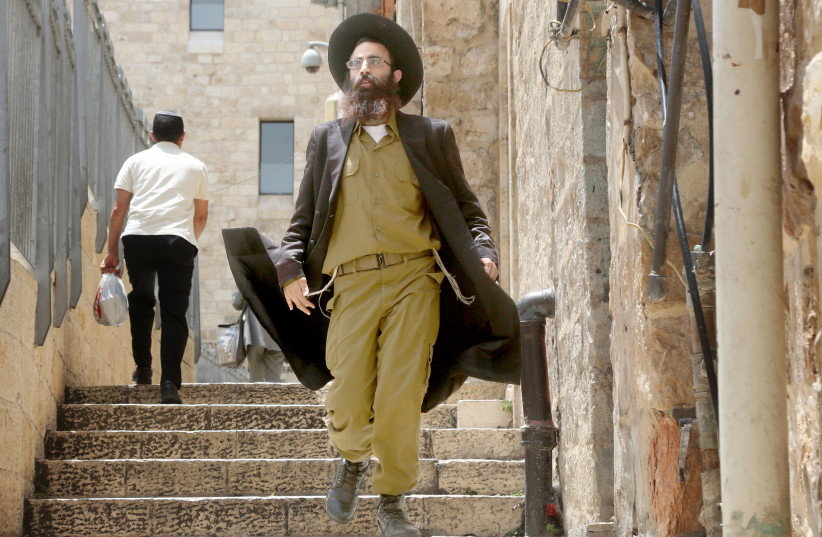A large and diverse majority of IDF reservists agree that Israel cannot continue to offer military service exemption to its ultra-Orthodox population, a recent survey revealed. The survey, which polled 800 reservists who fought in the Israel-Hamas War, was commissioned by the Shoulder to Shoulder Campaign and conducted by the Dialogue Institute.
Seventy-seven percent of respondents agreed that, following the events of October 7, the state can no longer afford to continue exempting the ultra-Orthodox from military service. The survey reveals cross-political agreement. A total of 65% of religious respondents and 76% of right-wing respondents support drafting the ultra-Orthodox.
Furthermore, 73% of reservists believe that any law that does not lead to significant recruitment of ultra-Orthodox youth is anti-Zionist and harms those currently serving.

Another finding of the survey indicated that only 18% of respondents supported an agreed-upon law with ultra-Orthodox leadership that would exempt the majority of the haredi community. Conversely, 71% oppose such a law. Opposition is also significant among religious (60%) and right-wing (64%) respondents.
The survey’s implications could be substantial for the political system. Three-fifths of respondents stated they would consider not voting for a party that supports an exemption law, including 35% of religious and 48% of right-wing respondents.
Jonathan Shilo, one of the founders of Shoulder to Shoulder, emphasized the central message of the study’s findings. “The world for all of us changed on October 7,” Shilo said. “We are fighting shoulder-to-shoulder for the state.”
Bennett on the rise among reservists polled
An additional notable finding in the survey was the marked support the reservists expressed for former prime minister Naftali Bennett. One in five reservists intended to vote for his party, in contrast to the sharp decline of Otzma Yehudit, which dropped to just 7% support.
Another statistic showed that 45% of reservists stated that an exemption law for the ultra-Orthodox would harm their motivation to report for reserve duty in the future. For Shilo, that was the most painful statistic – nearly half of the reservists saying they might not report for reserve duty if the ultra-Orthodox are not drafted.
"The exemption law for the ultra-Orthodox harms state security and creates a genuine fracture in Israeli society,” Shilo said.
